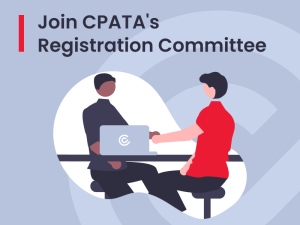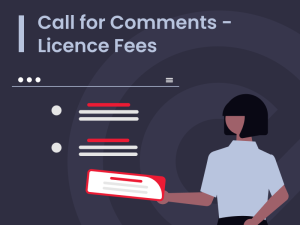CPATA’s Registration Committee has approved the Test Specifications for the Knowledge Examination components of the new qualifying examinations for patent agents and trademark agents.
CPATA develops each qualifying examination using a set of test specifications. Using test specifications helps to ensure that the qualifying examinations test defensibly.
Test specifications outline what an exam will measure in terms of content domain (e.g., areas and weights), as well as guidelines on how the content is to be measured. Such guidelines are expressed in term of structure (e.g., format, length, and cognitive level) and context (e.g., the circumstances in which examination questions are framed and that can influence their interpretation).
Test specifications for the Skills Examination components will be released in the fall.
Why is CPATA redeveloping the qualifying examinations?
A core part of CPATA’s mandate is to ensure that the public has access to patent agents and trademark agents who have the necessary skills and knowledge to serve their clients effectively. We aim to make the IP agent profession an attractive one for those with an interest in intellectual property by setting clear expectations in the form of technical competency profiles and administering transparent, objective, impartial, and fair registration programs, policies and procedures for licensing, including a defensible entry-to-practice framework.
With these goals in mind, CPATA will implement new qualifying examinations for Class 3 agents-in-training to become Class 1 active licensees starting in March 2024. The new exams will strive to minimize unintended barriers to entry into the profession while evaluating candidate knowledge and skills, as outlined in the technical competency profiles, more accurately.
What process is CPATA employing to develop the new exams?
After adopting the new technical competency profiles for patent agents and trademark agents, CPATA began the process of redeveloping the qualifying examinations to test for these competencies. The exams are being developed by working groups comprised of practicing licensees, with the oversight of an external consulting team of expert psychometricians.
The starting point for the test specification development process was data from the technical competency validation survey conducted in fall 2022, which indicated which areas of knowledge current practitioners use most in their day-to-day practice. Through several meetings and surveys, the working groups developed the test specifications which were approved by the Registration Committee at their March 31, 2023, meeting.
The next steps in the process which are currently underway include developing the bank of questions for the knowledge examinations and developing the templates for the skills examinations. Sample questions for the new examinations are scheduled to be posted this fall.
Understanding the Test Specifications
Cognitive levels. Competencies must be measured at the level(s) of cognitive ability appropriate to a test’s purpose. Cognitive levels include lower-order cognitive levels (i.e., remember or understand), intermediate cognitive levels (i.e., apply or analyze), and higher-order cognitive levels (i.e., evaluate or create).
Question format. There are various assessment vehicles or formats, each with distinct advantages and disadvantages. Some formats include selected-response items, constructed-response items, and performance-based tasks. The optimal format depends on a variety of factors. Typically, selected-response items (specifically, well-constructed, standardized multiple-choice questions) are most effective at assessing knowledge-focused competencies. For competencies that relate to skills, or when testing knowledge at higher-order cognitive levels, constructed-response items may be preferable. When testing more complex skills or qualities, or the ability to integrate or translate multiple competencies into work performance, performance-based testing may be optimal.
Examination length. Once it is clear what content is to be assessed, at what cognitive level(s), and by what assessment vehicle, other decisions (such as exam length) can be made. Such decisions consider validity of score interpretations (e.g., the extent to which scores obtained from the test accurately and appropriately draw valid conclusions about test-taker performance), reliability (e.g., consistency of content and results across sittings), and fairness (e.g., maximizing accessibility for all test-takers).
What will the new qualifying examinations be like starting in 2024?
Patent Agent
To become licensed as a Patent Agent, a person (in addition to meeting other requirements) must successfully complete the following qualifying examinations:
- Patent Knowledge Examination
- Patent Agent Skills Examination Part 1
- Patent Agent Skills Examination Part 2
The Patent Knowledge Examination evaluates the patent-related, knowledge-based technical competencies. A test-taker must successfully demonstrate competence on the Knowledge Examination before attempting the Agent Skills Examination.
The Patent Agent Skills Examination Part 1 and the Patent Agent Skills Examination Part 2 are independent examinations that can be completed in any order. Each evaluates a subset of the patent-related, skills-based technical competencies.
Overview of the Patent Knowledge Examination Test Specifications
Test-takers have 4 hours to complete the computer-administered examination. The examination uses a closed-book format.
The examination consists of 135 independent multiple-choice items with 4 response options, of which up to 10% of items will be designated as non-scored experimental items.
The Patent Knowledge Examination assesses the patent-related knowledge concepts specified in the College of Patent Agents and Trademark Agents Technical Competencies document. The table below specifies the percentage of questions by area:
| Knowledge area | % of marks |
| Foundational patent knowledge | 34% (+/-5%) |
| Knowledge specific to strategy | 11% (+/-5%) |
| Knowledge specific to drafting | 12% (+/-5%) |
| Knowledge specific to prosecution | 31% (+/-5%) |
| Knowledge specific to validity or infringement | 12% (+/-5%) |
Trademark Agent
To be licensed as a Trademark Agent, a person (in addition to meeting other requirements) must successfully complete the following qualifying examinations:
- Trademark Knowledge Examination
- Trademark Agent Skills Examination
The Knowledge Examination evaluates the trademark-related, knowledge-based technical competencies. A test-taker must successfully demonstrate competence on the Knowledge Examination before attempting the Agent Skills Examination.
The Trademark Agent Skills Examination evaluates the trademark-related, skills-based, technical competencies.
Overview of the Trademark Knowledge Examination Test Specifications
Test-takers have 4 hours to complete the computer-administered examination. The examination uses a closed-book format.
The examination consists of 135 independent multiple-choice items with 4 response options, of which up to 10% of items will be designated as non-scored experimental items.
The Trademark Knowledge Examination assesses the trademark-related knowledge concepts specified in the College of Patent Agents and Trademark Agents Technical Competencies document. The table below specifies the percentage of questions by area:
| Knowledge area | % of marks |
| Foundational trademark knowledge | 50% (+/-5%) |
| Knowledge specific to registrability and strategy | 15% (+/-5%) |
| Knowledge specific to prosecution | 19% (+/-5%) |
| Knowledge specific to opposition and s. 45 proceedings | 16% (+/-5%) |
Why is the length of the Knowledge Examinations 4 hours?
For an examination consisting of 135 independent, concise, multiple-choice questions with 4 response options, three (3) hours would typically be adequate for most test-takers. Given that time pressure is not a tested construct on this examination, and given accessibility goals, the time to complete the examination will be four (4) hours.
Why are the Knowledge Examinations closed-book?
The knowledge examinations use a closed-book format, where the items are designed to test general understanding of core concepts (rather than information retrieval).
Test-takers are encouraged to prepare by reviewing source materials with the goal of understanding key concepts, rather than memorizing specific sections.
A closed-book format was selected for the knowledge examinations for the following reasons:
Test quality. The ideal knowledge-based test items focus on understanding of core concepts, rather than on minute details or information retrieval skills. Such items better test core constructs (for improved validity) and require less frequent updates (for improved reliability).
Reduced time pressures. A closed-book exam tends to rely less on time pressure. This can be especially beneficial to those who are multilingual, those with test anxiety, and those with various disabilities.
Questions
For any questions, please contact registration-inscription@cpata-cabamc.ca






